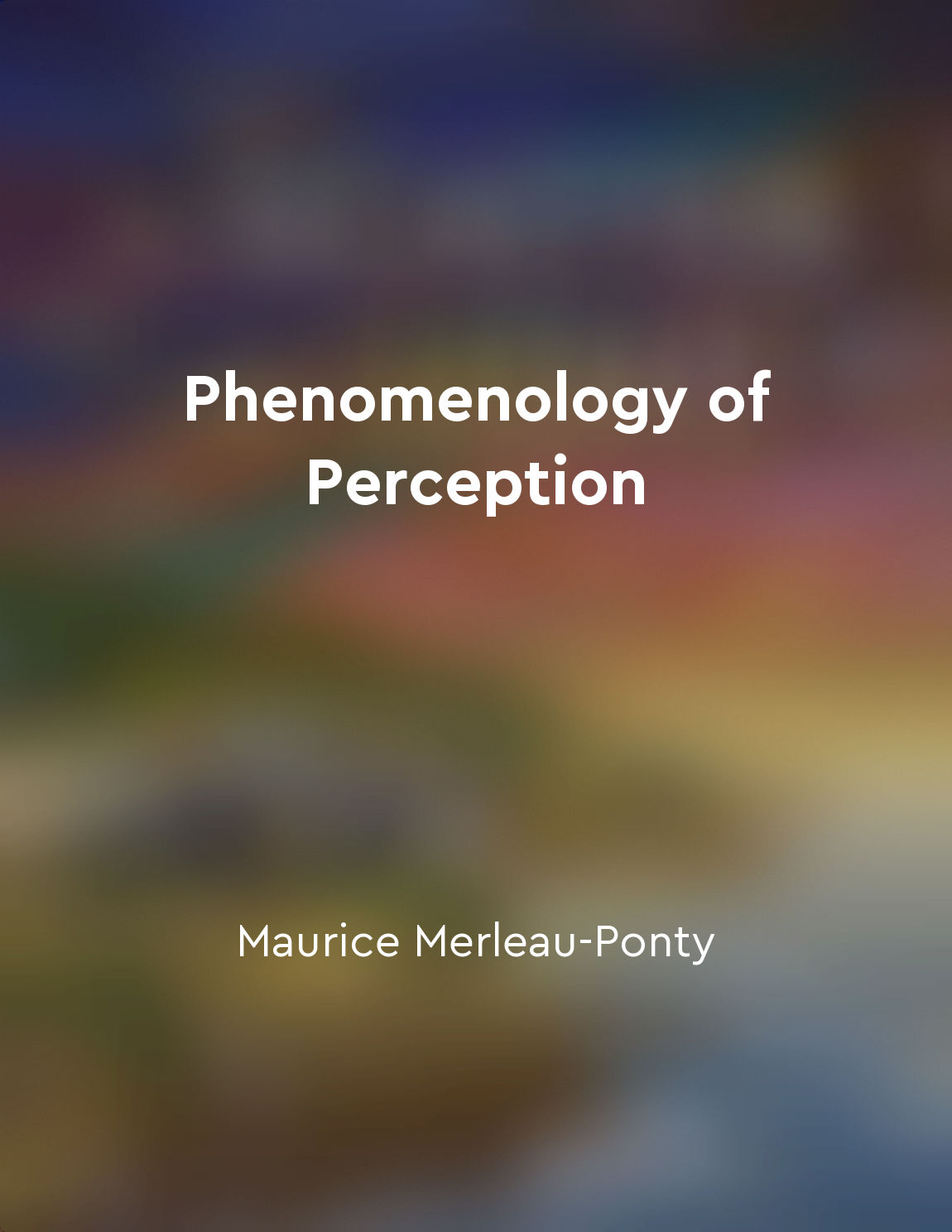The brain's sense of self can be altered by neurological disorders from "summary" of Phantoms in the Brain by V. S. Ramachandran
The brain is a complex organ that plays a crucial role in shaping our sense of self. However, this sense of self can be profoundly altered by various neurological disorders. Conditions such as phantom limb syndrome provide striking examples of how the brain's perception of the body can be distorted. In cases of phantom limb syndrome, individuals who have lost a limb may continue to feel sensations or even pain in the missing appendage. This phenomenon suggests that the brain's representation of the body is not fixed but can be malleable and subject to change. In essence, the brain is capable of creating a vivid and convincing illusion of a body part that no longer exists. Furthermore, conditions like Capgras syndrome demonstrate how neurological disorders can disrupt the brain's ability to recognize familiar faces or even one's own reflection. Patients with Capgras syndrome may believe that loved ones have been replaced by impostors, leading to profound feelings of alienation and detachment. This distortion of identity highlights the extent to which the brain's sense of self can be disrupted by neurological dysfunction. Additionally, disorders like schizophrenia can cause individuals to experience auditory hallucinations and delusions, further blurring the line between reality and illusion. The fragmented sense of self experienced by those with schizophrenia underscores the fragile nature of our perception of reality and identity.- The examples of phantom limb syndrome, Capgras syndrome, and schizophrenia illustrate how neurological disorders can profoundly impact the brain's sense of self. These conditions challenge our understanding of the relationship between the brain and identity, revealing the remarkable plasticity of the brain and its role in shaping our perception of self and reality.
Similar Posts

The body is a site of affective and emotional engagement
The body is not just a physical entity; it is a place where emotions and feelings come to life. Our bodily experiences are inte...

Each patient's case is a window into the complexities of the brain
In my practice as a neurologist, I have encountered a myriad of fascinating cases that have shed light on the intricate working...
Time's directionality based on entropy increase
According to the laws of thermodynamics, entropy tends to increase over time. This means that the universe as a whole is moving...

The brain's ability to adapt can lead to both positive and negative outcomes
The brain's remarkable plasticity allows it to adapt to a wide range of circumstances, leading to both positive and negative co...

Each patient's story sheds light on the complexities of the human brain
Throughout the clinical tales presented in this study guide, the author explores the intricate workings of the human brain thro...
Visual hallucinations can occur in blindness
Oliver Sacks explores the fascinating phenomenon of visual hallucinations in individuals who are blind. Contrary to common beli...

